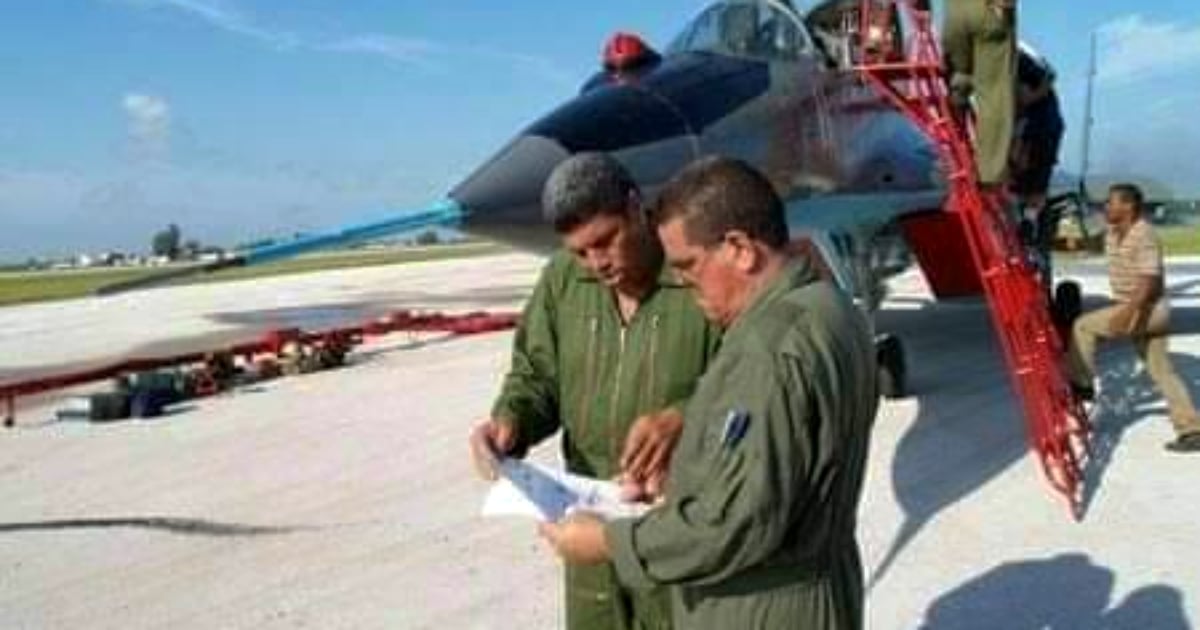The Cuban exile community has expressed outrage and disbelief upon learning that Cuban military pilot Luis Raúl González-Pardo Rodríguez, associated with the shootdown of two aircraft from the Brothers to the Rescue organization in 1996, entered the United States under the Humanitarian Parole Program.
The arrival of former Colonel González-Pardo, which occurred on April 19, 2024, has stirred controversy due to his role in the operation that resulted in the deaths of four Cuban-Americans. González-Pardo, who was a member of the Cuban Air Defense and Air Force (DAAFAR), was linked to the mission that intercepted the civilian aircraft in international waters, according to an investigation by the International Civil Aviation Organization.
Controversial Arrival
Orestes Lorenzo Pérez, an exiled pilot who escaped Cuba in 1991, confirmed to Martí Noticias that González-Pardo participated in the aerial pursuit that led to the shootdown, although he assured him that he did not fire upon the aircraft.
The 1996 incident remains a sore point in the memory of the Cuban exile community in Miami, and the arrival of the pilot has been seen as an affront to the victims and their families. Arnaldo Iglesias, one of the survivors of the attack, expressed his discontent, calling the situation "unacceptable." Silvia Iriondo, who was also aboard one of the planes that managed to escape, demanded answers from U.S. authorities, specifically calling on Secretary of State Antony Blinken and Secretary of Homeland Security Alejandro Mayorkas for explanations.
González-Pardo, who has denied most of the accusations against him, has yet to provide a full public statement regarding his involvement in the incident. However, Orestes Lorenzo believes that the pilot could be crucial in uncovering details that remain hidden about the attack. Despite the controversy, González-Pardo continues to live in Jacksonville, where he works in a bakery and is awaiting the arrival of his wife.
Questions about Luis Raúl González-Pardo's Entry into the U.S.
Given the contentious nature of González-Pardo's entry into the United States, several questions have arisen regarding the circumstances and implications of his arrival.
What is the Humanitarian Parole Program?
The Humanitarian Parole Program allows individuals to enter the United States for urgent humanitarian reasons or significant public benefit, even if they do not meet traditional visa requirements.
Why is Luis Raúl González-Pardo's entry into the U.S. controversial?
González-Pardo's entry is controversial because of his alleged involvement in the shootdown of two civilian aircraft in 1996, resulting in the deaths of four Cuban-Americans, a deeply traumatic event for the Cuban exile community.
What has been the response from the Cuban exile community in Miami?
The Cuban exile community in Miami has reacted with indignation and demands for explanations from U.S. authorities, viewing González-Pardo's arrival as an affront to the victims and their families.
What are the potential implications of González-Pardo living in the U.S.?
González-Pardo's presence in the U.S. could lead to further investigations and potential revelations about the 1996 incident, as well as heightened tensions within the Cuban exile community.
